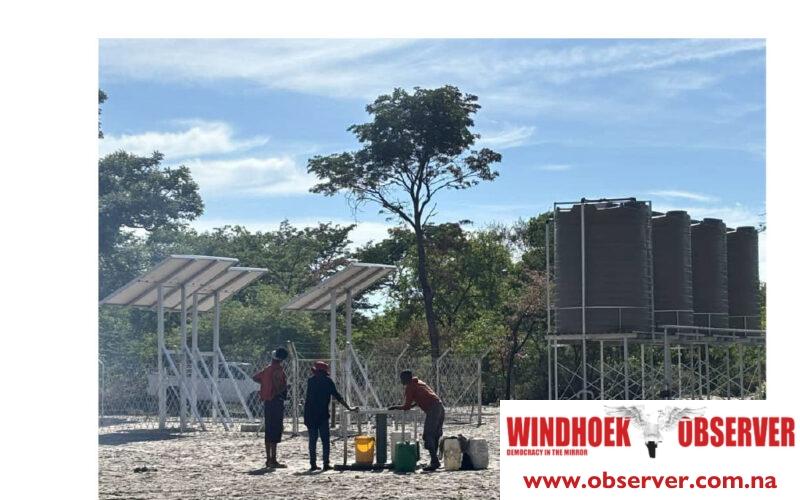Martin Endjala
The Ministry of Agriculture, Water, and Land Reform (MAWLR) has invited bidders to tender for the installation of boreholes in many parts of the country, particularly in rural areas where severe water shortages continuously occur.
The work required includes the construction and installation of traditional wells, the installation of mini desalination plants for boreholes with salty water, and the drilling and test pumping of boreholes.
Work also includes the installation of new boreholes and water point infrastructure, the rehabilitation of water point infrastructure, the construction of earth dams, and the cleaning of boreholes, amongst others.
Last month, the ministry’s directorate of water supply announced that it plans to drill 100 boreholes in the current financial year.
During a telephone interview with the MAWLR spokesperson, Jona Musheko on Wednesday, he explained that the initiative is one of many ongoing efforts by the ministry to address water scarcity in the affected regions.
When asked about the total cost and the targeted regions, Musheko could not provide sufficient information, citing the ongoing process of receiving bids.
“At this point, it will be difficult to say, for example, that the total cost is N$37 million or more because this will give bidders an upper hand when submitting their tenders. Hence, we are saying, let the bidder himself or herself bid what kind of work they wish to render and in which part of Namibia they wish to do it,’” Musheko said.
He acknowledged the ongoing water shortage in various regions and stated that the tender in question aims to provide the necessary supplies to the affected regions to curb water scarcity.
This comes after reports of water shortages in areas like the Oshikoto Region and others, where a lack of boreholes has rocked the majority of the villages.
Recently, the publication reported on a school closure near the Ongaaka village in the Omuthiya constituency due to brackish water that is not good for human consumption.
Residents have to travel long distances to fetch water from nearby villages that happen to have functional boreholes.
Last week in the same region, in the Nehale Lya Mpingana constituency, Silas Henock, a community member, also complained about the lack of boreholes in the constituency and surrounding villages.
Henock adds that rehabilitating boreholes that are not in use will further save the government money and that installing more than one or two boreholes will greatly assist the community.
Towns such as Karasburg and Mariental have initiated water rationing to curb water scarcity in the towns and only use the water at a given time.
The publication did reach out via text message to the Mariental Mayor, Cherien Kock, about the water rationing, but this proved futile at the time of publication.
On Tuesday, Rundu residents living in the Ndama area took to the streets to express their disappointment with the Rundu town council for failing to provide them with potable water.
The residents have been without water for several months. According to reports, since September 2023, they have faced water rationing, with water only available between 22h00 and the early morning hours.
In January, the situation worsened, with residents only being able to access water two to three times a week.
Rundu Town Council spokesperson Benjamin Makayi said that he cannot make any comments on the tender as the process is still ongoing and will only do so once the process is finalised and if Rundu appears in the list of towns or regions to benefit from the envisaged installations.
In January, NamWater reported that the country’s dam levels were at 57.8% of their capacity, a significant decrease from 70.8% at the same time last year.
The company stated that the statistics paint a troubling picture for NamWater and Namibia as a whole.




